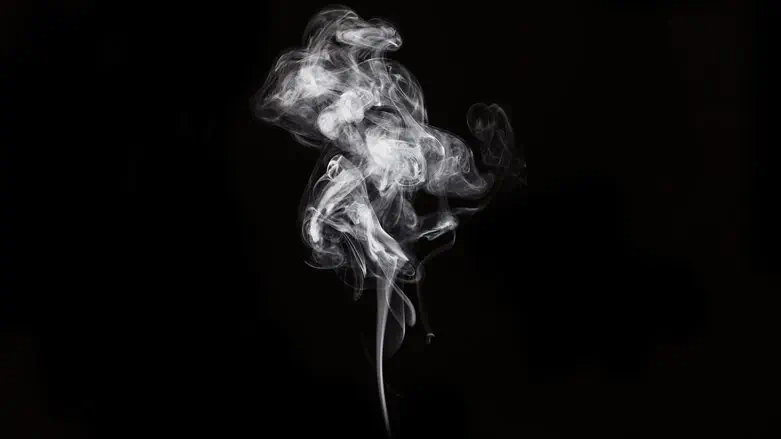
We read in our Parasha of the death of the two sons of Aaron:(10:1-3)’Nadab and Abihu, each took his fire pan, they put fire in them and placed incense upon it; and they brought before Hashem an alien fire that He had not commanded them. A fire came forth from before Hashem and consumed them, and they died before Hashem. Moshe said to Aaron:’I will be sanctified through those who are nearest to Me, thus I will be honored before the entire people’, and Aaron was silent’.
Rashi, commenting on the words ‘and I will be honored before the entire people’ says:’When Hashem exacts judgement upon the righteous, He becomes feared, exalted and praised’.
Rav Aryeh Leib Heiman expounds on this Rashi:”We need to discard the accepted notion, that only heroic death for the sake of the people, or being killed by our enemies, raises the deceased to the exalted level of ‘sanctification of Hashem’s Name’. The truth is that not only they are entitled to this description.
“The basis for Rashi’s commentary is Moshe Rabbeinu’s words to Aaron: whenever a righteous person is punished by Hashem with strict judgement, the very fact that Hashem is so exacting with him, is in itself a sanctification of Hashem’s Name.
“When Moshe Rabbeinu informed Aaron, after the death of his two righteous sons, that it was a fulfillment of Hashem’s earlier words to Moshe:’I will be sanctified by those closest to Me’, Aaron fell silent, in the knowledge that their death was a sanctification of Hashem’s Name.”
Rav Shimshon Raphael Hirsch adds:”The meaning of ‘sanctified by’, when used concerning Hashem, is that his sanctity is revealed in His deeds, whether performed on man, or for his sake. When Hashem does not forgive even those closest to Him for transgressing His will, His absolute sanctity is revealed.”
The Meshech Chochma comments :”The decree against Nadab and Abihu was הכרחי: essential, as, thereby, ‘I will be honored before the entire people’.
“This was required lest the people err, and think that Hashem ותרן: is forgiving of transgressions. This thought could arise as a result of Hashem, at Moshe Rabbeinu’s entreaty, forgiving Bnei Israel for the sin of the golden calf, and even deigning to dwell in their midst.
“The people might, as a result, think that Hashem will readily forgive their iniquities, and be forebearing.
“It was therefore necessary to teach them that their thoughts were not those of Hashem; the awesome decree that was pronounced against Aaron’s sons, was needed to fulfill the injunction that Hashem ‘will be sanctified through those’ nearest to Him, ‘before the entire people’.”
Rav Baruch Halevi Epstein adds:”What might have been the תכלית:objective to consecrate the Sanctuary by the death of these exalted souls, and what was the purport of Moshe saying to Aaron that ‘your sons died only to sanctify Hashem’s Name’- what was the nature of this sanctification?
“To answer this, let us first note that the reason for the Sanctuary, and the offerings to be made therein, was to expiate and atone for transgressions of Mitzvot.
“Therefore, lest the people now think that they need not be so careful not to transgress Mitzvot, as they now had a ready means of atonement, Hashem taught them that the atonement through the offerings was only for unintentional transgressions.
“He did so by the death decreed against Nadab and Abihu, who, despite being favored in His eyes, nevertheless, when they committed an intentional transgression (deciding a halakhic question, whilst in the presence of their Rabbi ), were not spared from strict judgement.
“This was the sanctification of the Sanctuary, and of Hashem’s Name, to which Moshe Rabbeinu alluded.”
The Ktav Sofer offers a beautiful new interprtation of the verse (Proverbs 4:2):’For I have given you לקח טוב, do not forsake my Torah’:”What is its relevance of the Midrash in bringing this pasuk here, to the erection of the Sanctuary? First let us clarify why it says: ‘Erect Me a sanctuary, and I will dwell in your midst’; should it not have said:’I will dwell in it’?
“The answer might be, that, even though the Sanctuary elevates and purifies Israel, and Hashem dwells in it, it might lead the people to be more lax in mitzvah observance, because of it; before they had the Sanctuary, knowing that they did not have a way of atoning for sins, they had to carefully guard themselves from any transgression.
“They therefore needed to be warned: ‘erect a Sanctuary for Me’, but don’t thereby ‘remove Me’ from your hearts, but rather make sure that ‘I dwell in your midst’: in you, so that you continually remember to keep My mitzvot.
“Hashem therefore commanded:’Make an offering for Me’: the Sanctuary you erect shall be for My sake and honor, and not for your own benefit and indulgence.
“Now we can understand why the Midrash brought the pasuk here:’I have given you a goodly thing’: I have given you the Sanctuary and the offerings, but ‘do not forsake My torah’, because of it!”
Rav Hirsch - A parting thought :”The sons of Aaron were punished so severely because they were ‘close to Hashem’- had they been of lesser stature, perhaps their transgression would have been forgiven.
“This can be contrasted with the ways of modern society, where the leaders are often permitted, or take, great leniency in their moral behavior.
“In Judaism, whoever is greater than others, is held to a higher standard, when it comes to matters of morality and adherence to ethical codes.”
לרפואת נועם עליזה בת זהבה רבקה ונחום אלימלך רפאל בן זהבה רבקה, בתוך שאר חולי עמנו.